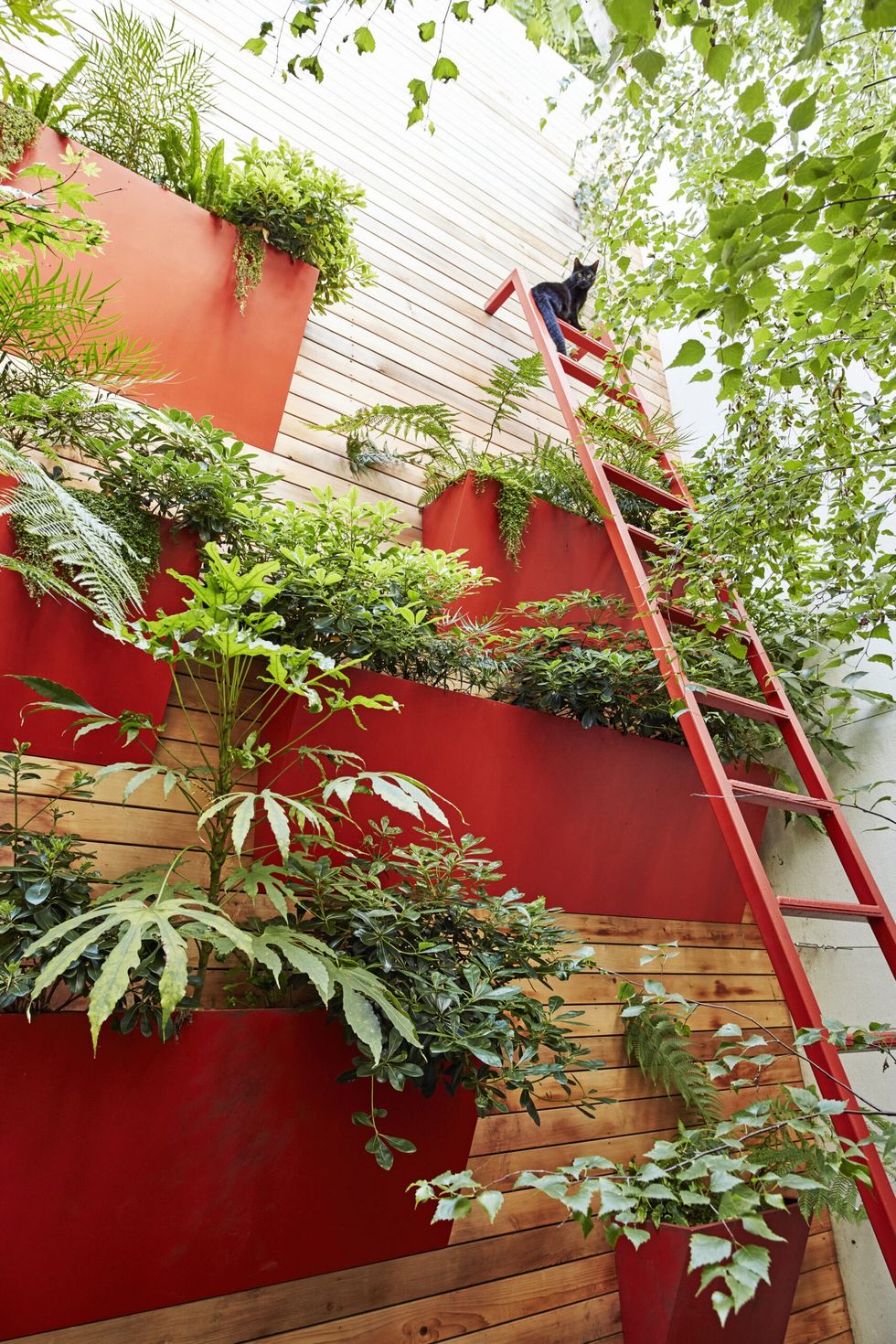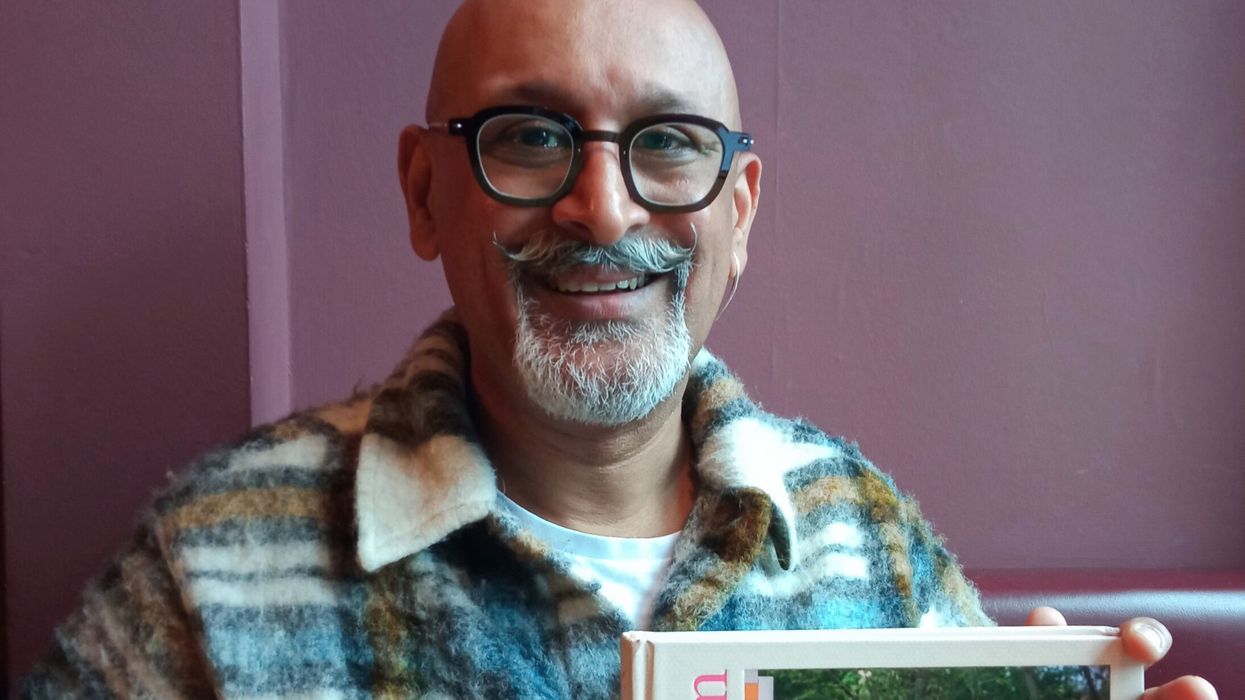HOW do Eastern Eye readers bring a touch of “back home” into their gardens in Southall or Wembley, or indeed, any other part of the UK?
Near his home in the village of Brookmans Park in Hertfordshire, landscape designer Manoj Malde talked about his new book, Your Outdoor Garden: How to Design a Garden You Can Live In.
After much toing and froing with his publishers, Francis Lincoln, both sides happily settled on a vivid cover picture – it was the Royal Horticultural Society/Eastern Eye “Garden of Unity” that Malde designed for the 2023 Chelsea Flower Show.
He is thrilled that within days of publication last month, it became “the ninth best-selling gardening book in the UK. It’s selling not just in the UK, but in America, Canada, Australia and New Zealand.”
Dedicated to his late father, Motilal Malde, and his mother, Suryakala, who lives with him, Malde has offered a simple guide on how the garden should be an extension of the indoor living area.

Chapters include: Where to begin; Planning your new garden; Garden design fundamentals; Creating a sustainable sanctuary; Plants make a garden; and Pulling it all together. At the end of the book, there is a suppliers directory of nurseries, furniture, architectural salvage yards, pots and pergolas. This, he hopes, will encourage people to “explore more”.
Malde has always been partial to strong colours, especially “orange and hot pink”. He was born on Mombasa in Kenya into the Gujarati Oshwal community and came to London as a fouryear-old in 1973.
Over a cappuccino at The Brookmans pub, Malde spoke about the inspiration he had derived from The Pigment Trail, a book about Indian experiences that its American author, Debra Luker, had gifted him. “I love flicking through it,” enthused Malde, who used to visit India frequently as a fashion design in the days before he became a garden designer. “It gives me ideas for colours. I love India. I don’t think there’s any other country in the world that matches up to the hand skills and the art designs of India.”
On how to bring the subcontinent into suburban Britain, he responded: “The fundamentals of garden design are pretty much the same, whether you’re creating something that has an Indian touch or otherwise. But, then, the way to bring that sort of ethnicity into the garden is by looking at your own background, your own heritage.
“I get very much inspired by the colours of India – my mother’s saris, which I always pick up on, embroideries, textiles, things like carvings. So, look at the creativity of your own heritage, your own background, and then start bringing that into the garden.When I did the garden at Chelsea in 2023, the soft furnishings, the mirror embellishments on the cushion covers and the embroideries were all from India. So, why not bring some of that into your garden furniture?”
At his home, a large wooden Indian table that was too large for his lounge is now in the garden. “We wash it if it gets dirty, we oil it and take care of it.”
Malde suggests clay or terracotta pots that he remember from Kenya. And a pergola could be swathed in Indian fabric and “used almost like a curtain”. He also recommends painting wooden panels in “dusky blues and greens”, although he himself is drawn to “pinks and oranges – those lovely, hot colours”. They remind him of Jaisalmer in Rajasthan.
“Those are the little finishing touches you can bring into the garden to create that lovely Indian vibe,” he said.
Lighting should not be overdone as “it can look quite garish. Lighting in a garden is about creating a warm, cozy, inviting ambience.”
Although young people struggle these days to buy their own homes, property ownership among Asians is higher than in the rest of the population. This means Asians can do more with their gardens.

“You don’t have to be scared to mix your edibles with your ornamental planting, because not everyone has such a big garden that they can create a separate kitchen garden,” he pointed out.
He gave Eastern Eye some tips on flowers, and his comments on Indian preferences apply to people from Pakistan and Bangladesh as well.
“Indians love jasmine and marigolds,” he remarked. “They could grow dahlias. There’s a huge array of colours in dahlias.
“They could try crocosmia and helianthus. There’s helenium, which are lovely high summer bold colour plants. And salvias come in many, many colours. You get these strong amethyst purples, cerisey strong pinks; they come in reds, pale pinks as well.
“Maybe you want to try hedychium which are of the ginger family. You can get some really exotic looking flowers.”
He recalled: “For the Eastern Eye garden in Chelsea, I chose angelicas with lots of foliage, and lots of grasses. I even had fennel in there. There was artemisia in there. I used some Benton irises, which were very popular last year for the Chelsea Garden.
“Irises are an amazing plant. They need lots of heat. The bearded irises look quite exotic. If you’ve got a hot south facing garden, irises are great.”
He also talked about vegetables: “Chillies are a definite. Every Asian family needs chillies in their food. We can’t live without it. In the garden at Chelsea, I had three chilli plants and one of them came home with me and the amount of chillies that we got off that was amazing.”
If Malde has more seeds than he needs, he gives them away in the hope “it encourages other people to garden as well”.
“I grow aubergines, which do really well, and tomatoes, for sure. We use a lot of tomatoes in Indian cooking. Moongri I want to try again. The English word for moongri is ‘Purple Rat’s tail’. We use a lot of onions and spring onions and it’s worth growing coriander and methi because we use those in cooking and they’re really easy to grow. And, I would certainly encourage people to grow peas – they are very high in protein,” he said.
According to Malde, “improving your soil is the key. In London, most of us are on clay”. Instead of buying fertiliser, he is a great believer in organic compost made at home, for example, by gathering fallen leaves and putting them in a corner of the garden in hessian bags. He also urged Asians to avoid “hardscaping” their front and back gardens.
“Make sure that your foundations are permeable,” he recommended. “Lay your slabs so that the hardscaping remains permeable and allows rainwater to penetrate back into the soil. We all complain about pollution. Children are getting asthma more and have breathing difficulties. Why is that happening? It’s because we are paving everything over, and living in more and more in a concrete environment.”
Malde dreams of designing another garden for a future Chelsea Flower Show, “where the brief is to create a garden for an Indian family with an Indian vibe. What I would like to explore is something like the Mughal gardens of India, and bring in the artisan skills of India.”
Your Outdoor Garden: How to Design a Garden You Can Live In. By Manoj Malde. Published by Francis Lincoln, an imprint of the Quarto Group. £20




